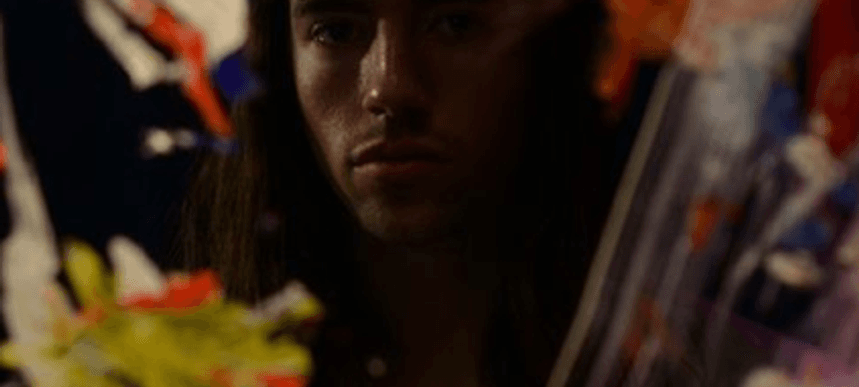
Found Sound: Gang Colours
Will Ozanne, aka Southampton/Botley-based producer and vocalist Gang Colours, makes sparse electronic music, and will release a new album called 'Invisible In Your City' next week. His 2010 debut EP, 'In Your Gut Like A Knife', is notable for its use of found sound – in this case, of a fight that broke out in Brighton used on the title track. Here, Ozanne explains a little more about the sample recording.
Hi, Gang Colours! Tell us about this found sound.
Ozanne: "I was in Brighton a few years back, having a jolly with some friends, and a fight broke out in the distance. So I whipped out my newly acquired dictaphone (which I sometimes refer to as my 'dyslexic dictaphone' as I got it for free when I was declared mildly dyslexic by my university; much love to the appropriate governing bodies for hooking up that system btw).
"I was far enough from the event to not look like a member of the press begging for the latest scoop. Though I was still worried that it wouldn't pick up any thing good from that distance, but the dictaphone tends to amplify even small signals on a recording, so I ended up with a moderately clear recording of this boozy scuffle, and with something that I deemed a very useable sample when listening back to it at home later on.
"It was one of my first recordings on that thing, and the first time I had chopped up one of my own field recordings for a track. The track that I used it in turned out to be the title track from my debut EP 'In Your Gut Like A Knife'."
Did In Your Gut Like A Knife come from this sample, or was it added later? How did it evolve?
Ozanne: "I think I had already got most of the track done, but was still at the point where I had that nagging feeling that things were not yet quite complete. It's a scary place to be, because you really don't know what to do next, but you know that there is always some form of solution around the corner. So continuing to experiment aimlessly with the track was the decided action to take, and this involved getting my new recording on my dictaphone into Logic for a thorough chopping.
"After I had cut it up into a handful my favorite moments, I put it in my sampler, applied some effects to it and just tried to make it fit with the track somehow.
"Making this sample fit with this track was probably quite a significant notch in my music making timeline. It was the first success I had with my own found sound and I loved how unique it made the track feel (even if it just felt that way to me). I've continued to embrace this process in almost every track since."
You carry a dicataphone around with you a lot of the time to capture sounds – what are the most interesting ones you've recorded lately?
Ozanne: "If I'm being honest, I've not actually carried my dictaphone around with me for a while now. Not only because it became a pocket space whore, but it started to physically fall apart from all the adventures I had taken it on. I've got a surprisingly good recorder on my phone now though, so I still capture some interesting moments when I feel the time is appropriate. I like catching interesting authentic conversations between people, but interestingly enough, I don't end up using those recordings as samples really. For example, I have this great recording I did a couple years back of James Blake and Mount Kimbie boys playing chess and candidly discussing killer chess moves in a hotel lobby waiting for breakfast to start after a show and a fair few shandies in Amsterdam. It's an interesting and funny recording to listen to for sure, but it's not necessarily entirely useful for sampling. It's more about trying to capture those moments, that weird and unpredictable sounds might occur, because they make for quirky percussive elements in a track, which are always welcome."
Whose use of found sound do you particularly admire?
Ozanne: "I could be the teachers pet right now and answer with someone academically recognizable like 'Delia Derbyshire'. And while I've got love for Delia and her pioneering work, I didn't grow up admiring her work as I wasn't aware of it until much later on in life, although her influence is no doubt present in the artists I'm a fan of now. So I'll give a more modern example; I like it when people use found sound and process it in such a way it all these seemingly random recordings sound perfect as one and almost unnoticeable as rough recordings in the final mix, but completely essential to the overall feel of the track. I think Stimming is great at achieving this. There's probably a load of producers that do it great that I'm a fan of too, but he just popped into my head at this moment. I also think Micachu uses the sounds she finds in an interesting way that seems to amplify the rough textures that you often get with a spontaneous recording on a dictaphone."
Brownswood will release 'Invisible In Your City' on 16th September 2013.













